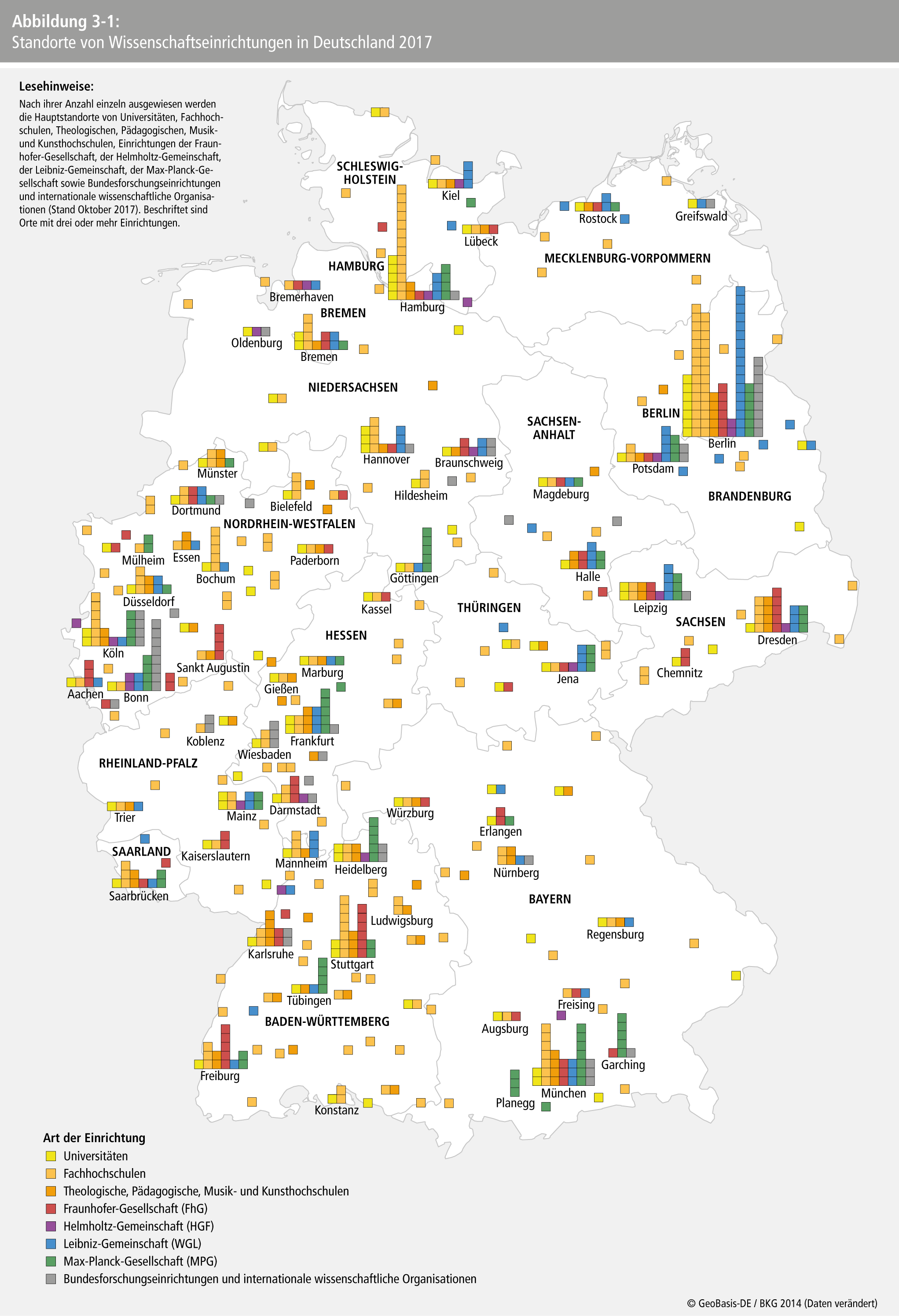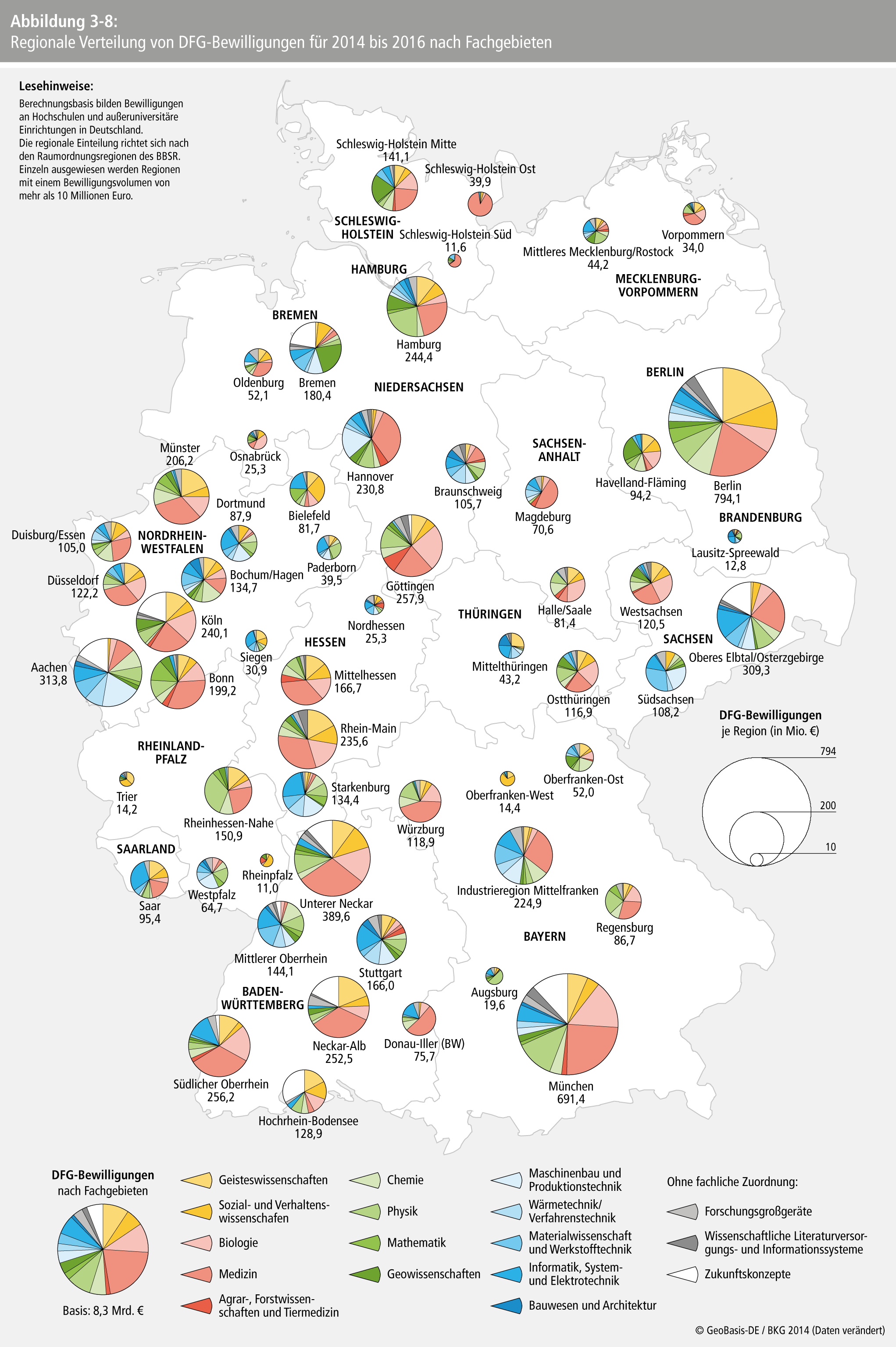The DFG Funding Atlas confirms the quality of Berlin research
08.08.2018 | The "Deutsche Forschungsgemeinschaft" DFG (German Research Foundation) has published the DFG Funding Atlas 2018 and confirmed that Berlin is Germany's most important center for science and research.

The science and research network in Berlin is one-of-a-kind in Germany
Since 1997, the DFG has published comprehensive analyses of the German research landscape every three years, taking into account in particular the volume of third-party grants obtained by German research institutions. The funding levels serve as one indicator of the quality of research in the various disciplines taught at German universities.
Berlin is Germany's biggest center for academic research: no other state in Germany has as many scientific institutions as the Brain City. The capital is home to four state and about 30 state-accredited universities, seven universities of applied sciences, four art schools, and about 70 non-university research institutions. The number and quality of the research institutions played a role in the DFG's ranking. Accordingly, Berlin and Munich led the list of German research centers, not surprising given that they are both home to two "elite" universities.
Berlin's universities also participate in the Excellence Initiative and make joint funding applications that are exemplary of the research collaboration typical in Berlin. (Hannover is the only other research center with a comparable concept.) The German capital is a "showroom for science and research," as Governing Mayor Michael Müller has said.

Consistent quality for over 20 years reflects stability of Berlin's research landscape
DFG has been publishing the results of its analyses for 20 years and Berlin's funding profile has been quite stable over that period. This stability can be interpreted as proof of the quality: Researchers who are consistently able to obtain third-party funding for certain research areas are also capable of advancing their research over the long term. And since third-party funds are competitive, they are one suitable indicator of the individual success of scientific institutions.
Total number of DFG grants to Berlin universities:
5th place with 270.5 million €: Freie Universität Berlin
9th place with 238 million €: Humboldt-Universität zu Berlin
24th place with 124.9 million €: Technische Universität Berlin
Berlin is by far Germany's leading center for the humanities and social sciences. Humboldt University and the Free University of Berlin cover almost every discipline in the humanities. This is enriched by a variety of cultural institutions unparalleled in Germany, including Berlin's 175 museums, the Staatsbibliothek zu Berlin - Preußischer Kulturbesitz (State Library), and research institutions such as the Leibniz-Centre General Linguistics (ZAS).